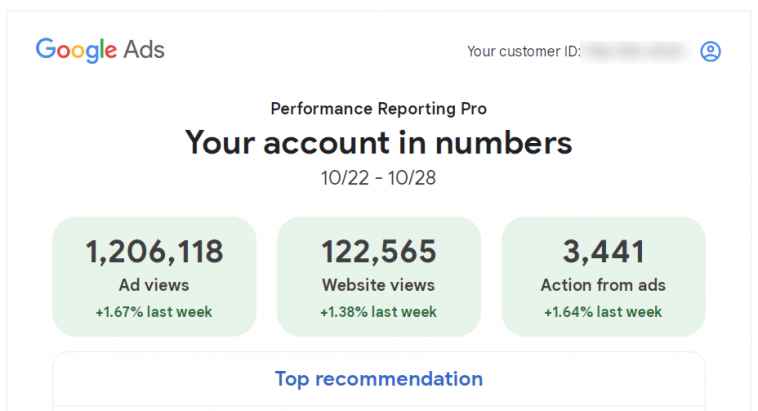Marketing is the lifeblood of any successful business. It’s the process of identifying, satisfying, and retaining customers, which ultimately leads to growth and profitability. To excel in this highly competitive landscape, businesses need a well-thought-out marketing strategy. While I cannot access the specific video you mentioned, I can provide you with an overview of the four essential principles of marketing strategy that can help any business succeed.
1- Understanding Your Target Audience:
The foundation of any effective marketing strategy is a deep understanding of your target audience. Before you can effectively market your products or services, you need to know who your ideal customers are. This involves:
a. Market Research: Conduct comprehensive market research to identify your target demographic, their needs, preferences, and pain points. Gather data on your competitors and industry trends. One simple way of conducting research is getting an email list of your Gmail account [address book] and requesting them to complete a survey. You can create that survey in Google Forms for free.
b. Buyer Personas: Create detailed buyer personas that represent your ideal customers. These personas should include information about their age, gender, income, interests, and more.
c. Customer Segmentation: Segment your customer base into distinct groups based on shared characteristics. This allows you to tailor your marketing efforts to each group’s specific needs. One effective way is to see the audience segment in the analytics of your social media accounts.
d. Customer Journey Mapping: Understand the customer journey, from awareness to purchase and beyond. This will help you identify touchpoints and opportunities for engagement.
2- Differentiation and Positioning:
In a crowded marketplace, differentiation is key. Your business must stand out from the competition. Effective differentiation and positioning involve:
a. Unique Value Proposition (UVP): Define what makes your product or service unique and better than alternatives. Your UVP should be a clear and compelling statement that resonates with your target audience. I’ve one advice here for you. Flip features into customer benefits works like a charm
b. Branding: Create a strong brand identity that conveys your values, personality, and promises. This includes your logo, color scheme, and messaging. Personally speaking, I’m a huge advocate of personal branding. Over the past 7 years, personal branding has helped me in better positioning to reach out to Pakistani audiences using the internet.
c. Positioning: Determine where your product or service fits in the market. Are you the high-end luxury option, the affordable solution, or the innovative disruptor? Position your brand accordingly.
Sponsored Ad
3- Choosing the Right Marketing Channels:
Once you know your audience and have a compelling value proposition, it’s time to reach your potential customers through the right marketing channels. Consider the following:
a. Content Marketing: Create high-quality, valuable content that addresses your audience’s needs. This can include blog posts, videos, infographics, and more.
b. Social Media: Utilize social platforms where your target audience is most active. Develop a social media strategy that engages and educates your followers. Make sure, you have a diversified social media presence. Create visual content that narrates a story related to your brand.
c. Paid Advertising: Invest in paid advertising through platforms like Google Ads, Facebook Ads, or Instagram Ads to reach a broader audience.

d. Email Marketing: Build an email list and send targeted, personalized messages to nurture leads and retain existing customers.

e. Influencer Marketing: Collaborate with influencers in your industry to promote your products or services to their followers.
I came across this website. It has a nice range of different agencies offering influencer marketing services. (I’ve not tried any personally though)
4- Analyzing and Adapting:
A successful marketing strategy is a dynamic one. It’s essential to measure and analyze your efforts and adapt as needed continually. This involves:
a. Key Performance Indicators (KPIs): Define and monitor KPIs to assess the effectiveness of your marketing strategy. These could include website traffic, conversion rates, social media engagement, and customer retention.
b. Data Analytics: Use data analytics tools to gain insights into customer behavior and preferences. This data can guide your marketing decisions.
c. A/B Testing: Experiment with different marketing approaches and compare their performance to optimize your strategy.
d. Continuous Learning: Stay updated with industry trends and marketing best practices. Attend conferences, read books, and follow thought leaders in the marketing field.
Takeaway:
A well-crafted marketing strategy is a fundamental component of business success. By understanding your target audience, differentiating your brand, selecting the right marketing channels, and continually analyzing and adapting your efforts, you can build a marketing strategy that drives growth and profitability. While the specific details of marketing strategies can vary from one business to another, these four principles are universal and provide a solid framework for achieving success in the dynamic world of business and marketing.
About Me:
- WhatsApp Channel: https://bit.ly/HishamSarwar
- ww.facebook.com/infomist
- Facebook Page: https://www.facebook.com/HishamSarwarBeingGuru
- Freelancing Group: https://www.facebook.com/groups/286279418799301
- Tiktok: https://www.tiktok.com/@hishamsarwar172
- Instagram: https://www.instagram.com/hishamsarwar/
- Twitter: https://twitter.com/beinggurudotcom
- LinkedIn: https://www.linkedin.com/in/hishamsarwar/
- Blog: https://beingguru.com






